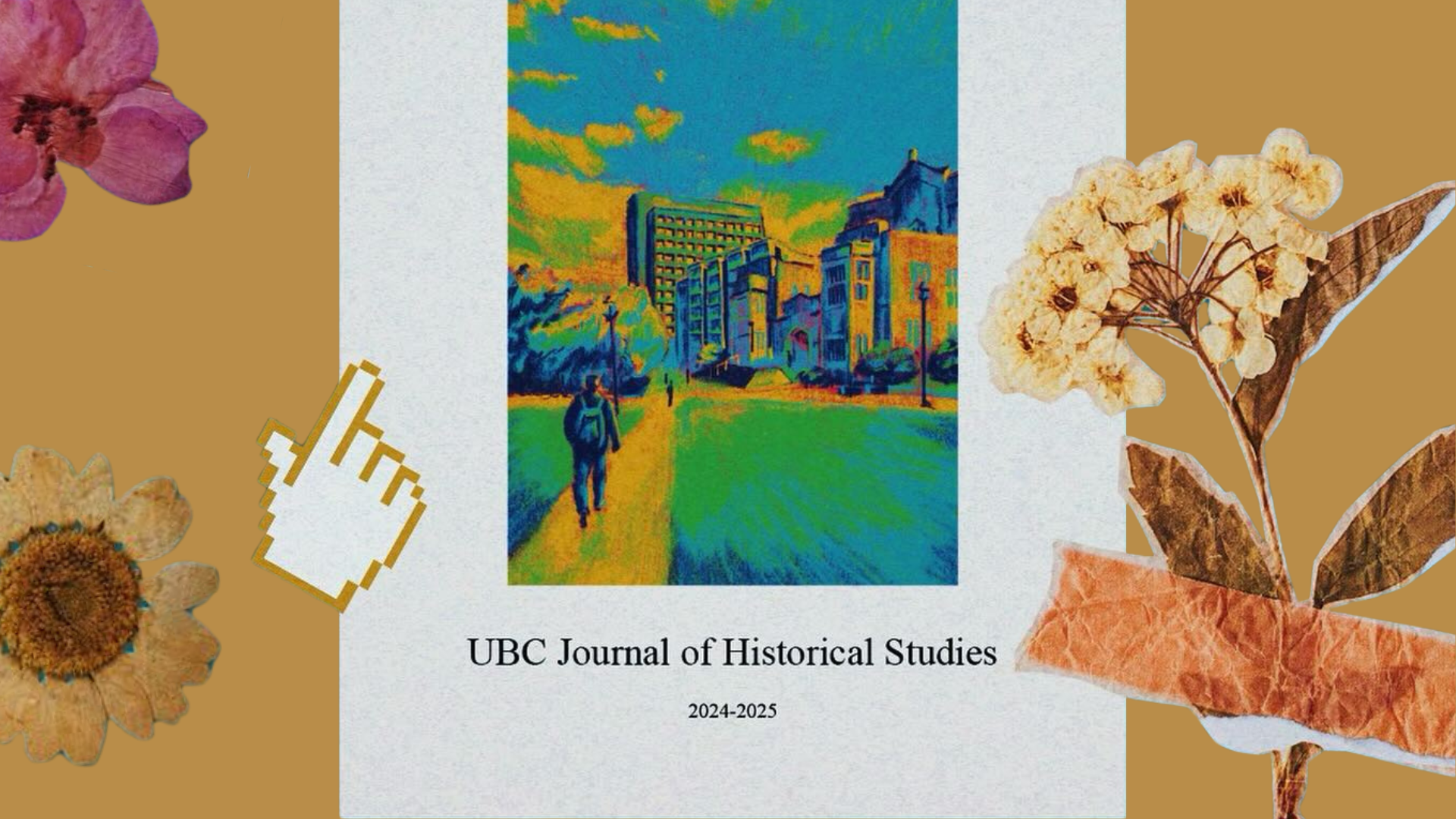

Presenter Emilio da Silva (SFU) is introduced by Prof. Robert Brain (UBC). Photo credit: Laura Silveira.
Professor Tina Loo, Conference Co-organizer
In early February, UBC Department of History hosted the 2025 Shifting Tides History Conference. Meant as a forum for senior undergraduate and graduate students from BC’s universities to present their research in a supportive environment, it drew seventy-seven participants to The Nest (UBC’s student union building), where, over a day and a half, they heard papers that ranged from military history to myth and memory, touching on places from all continents (except Antarctica) and ranging from the fourth century to the twentieth.


Quinton Huang (UBC) introduces his research. Photo credit: Peter Zhang.
This was the first time the conference was held away from its longstanding Vancouver Island location, where it was organized by the University of Victoria’s History Department. The organization will now be shared by the History Departments of BC’s universities and rotate among them.


Alyssa Talley (UVic) presents on 'Perpetrators and their History.' Photo credit: Laura Silveira.
The shift in venue and organization this year was just the latest development in the history of this conference. Established in 1975, it was first held at the Island Hall Hotel in Parksville, “then a fading relic of an earlier age of holiday opulence,” according to Dr. Patricia Roy, an historian at UVic, before moving to the Qualicum College Inn. As its name suggests, the inn had a previous life as a private boarding school for boys. I must confess that I remember the pool table and the raucous karaoke there more than any of the papers…. When the Inn went the way of the boarding school, the conference moved back to Parksville, where it was held – nearly yearly – until this February.


S. Berk Melin (SFU) on a panel about 'Sovereignty, Legitimacy, and Resistance.' Photo credit: Laura Silveira.
The history of the conference tells us a bit about relationships among the History Departments in BC. It was an initiative of Simon Fraser and the University of Victoria: UBC was not invited to participate at first. “As the ‘new kids on the block,’ the faculty at SFU and UVic felt, justifiably or not, that UBC looked down on them,” recalls Patricia Roy. “We wanted to show them that we could do interesting things on our own so we didn’t invite UBC.” That eventually changed. The details of the détente are lost to us now, but they revolved around the late Dr. Robert McDonald, an historian of British Columbia who had taught as a sessional instructor at both UVic and Simon Fraser before being hired at UBC.


Santiago Dominguez (UVic) discusses the role free and enslaved Black soldiers and leadership played in Colombian independence. Photo credit: Laura Silveira.
The shifts in Shifting Tides also reveal how the history departments in the province have changed. Initially, faculty gave most of the papers since the departments at SFU and UVic didn’t yet have robust graduate programs. When that changed, faculty were the first to be dropped. Over time, the conference has come to welcome students and faculty (as attendees) from the province’s new universities. This year, we were pleased to welcome three people from the University of Northern British Columbia in Prince George, and two from Vancouver Island University in Nanaimo.
As the conference moves well into its middle age during these uncertain financial times, we hope it can continue to be what it was this year and more; namely, an engaging forum for students and faculty from BC’s universities to exchange ideas and innovative research.


